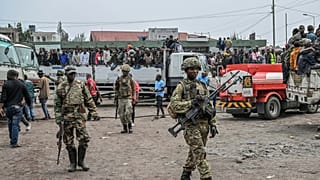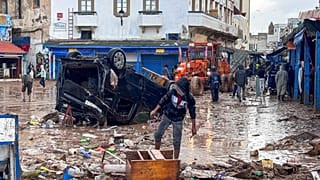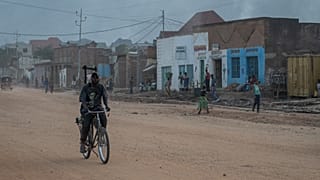Water
As many as 2.2 billion people still live without access to safe drinking water and 3.5 billion lack access to decent sanitation, according to a new United Nations report published on World Water Day.
“I think the situation is really challenging,” said Li Lifeng, Director of FAO’s Land and Water Division in Rome.
The UN report “Water for prosperity and peace” highlights that tensions over water are exacerbating conflicts worldwide. “(We) say without water, there's no life. Then without the water, there's no food. So water is the core, is the indispensable natural resources for sustainable development, for agriculture, for many different economic sectors.”
Among the countries most affected by water scarcity is Zimbabwe, which “has been facing drought since last year,” according to Lifeng.
He said there was a concerns about crop failure with more than two million in Zimbabwe potentially facing hunger.
Like some of its southern African neighbors, Zimbabwe is battling a devastating drought that aid agencies blame on El Niño and climate change.
The southern African country's staple maize harvest is expected to halve to 1.1 million tons in 2024 due to an El Nino-induced drought.













00:42
UN condemns deadly drone strike on peacekeepers in Sudan’s Kordofan
01:58
Femicide not officially recognised in Kenya despite rising cases
01:24
UN chief calls on Eritrea, Ethiopia to respect border pact on its 25th anniversary
01:00
Central African Republic prepares for critical elections amid persisting instability
01:02
First rain of autumn falls in Iran's capital after months of intense drought
01:49
UN sounds alarm on funding cuts for Egypt’s vulnerable